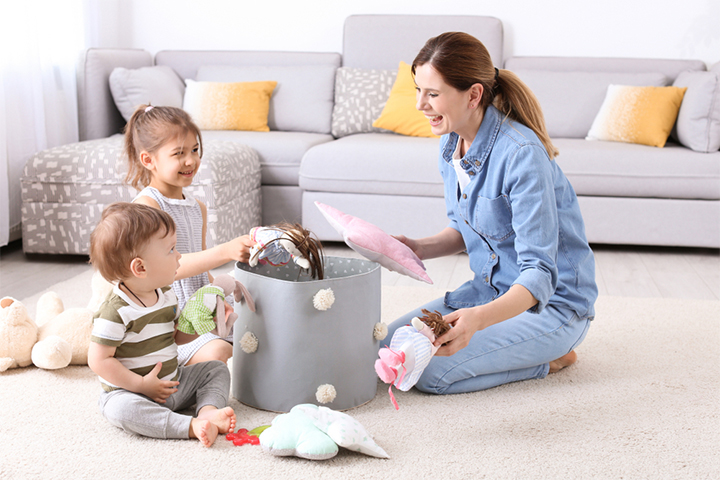
Image: Shutterstock
Every parent wants their child to grow up to be confident, successful and happy adults. We want to encourage them, always help them out when they are struggling, and may even take their fall when they fail. But do these things really help your kids in the long run? Many parents today hesitate to discipline their kids properly because they don’t want to do anything that might affect their child’s self esteem. And although being unnecessarily brutal and cruel to your kids is never okay, does this mean you walk around eggshells whenever they do something you don’t agree with? Where’s the line between being honest about their flaws and discipling them for the better and saying hurtful things that will not facilitate improvement? If you’re a parent who’s struggling to give your kids some constructive criticism and need help, we’re here to lend you a few tips and tricks. Simply read on to know more!
1. Help Your Child Understand That You’re Not Mad At Them
Image: Shutterstock
Sometimes when kids act out or do something they shouldn’t, it’s an honest mistake. Your child doesn’t know what is expected of them. And they usually learn through trial and error. If you want your child to come to you for guidance when they grow older or make mistakes, you have to be willing to show them that you understand that they had good intentions. Saying something as simple as “I know you didn’t mean to” or “I know you wanted to help “ before you outline what and where they went wrong can make all the difference.
Then your little one will know that they are understood by you and that you don’t seek to mindlessly reprimand them or embarrass them for something they didn’t know was wrong to begin with. Making sure that you understand the context is the best thing to do before you explain the impact of your child’s behavior. Try to focus on how their actions impacted others instead of telling your kids that they are bad for doing a certain thing. This way they are less inclined to think that they are bad people just because they did the wrong thing and will be more willing to deal with the consequences of their actions.
2. Move Forward
Dwelling in the past won’t help you no matter what age you are. The last thing you want your child to feel is a lasting feeling of guilt or shame over something they did forever ago. As long as they’ve learnt from their mistakes and are taking conscious steps to ensure that it doesn’t happen again, there’s no need for you to bring up something they’ve already worked through. This will only make them feel bad about themselves and will discourage them from making any behavioral changes. Instead help them come up with a plan to be more mindful and do the right thing. If they’ve hurt someone, ask your child what they can do to help the other person feel better. Then they can come up with an apology and a strategy to help control their frustration and anger in intense situations.
3. Make It About Learning
Image: Shutterstock
We all learn through experiences and our kids are no different. Every mistake they make is a lesson learned and that’s something that parents need to keep in mind while reprimanding them. Shift your focus to learning and not dealing out punishments. This doesn’t mean you can’t give them appropriate consequences for their actions, you should. But you must take the time to explain to your kids why you’re doing it and what you expect of them. The most important thing is to reassure them that they will get a chance to prove themselves in the future. Trusting your kids not to break your rules is the only way you can see if they’ve truly learnt their lesson. So, give them a chance instead of banning them from doing something forever.
4. Recognise Their Progress
Image: Shutterstock
Parents often withhold their approval, thinking that this will help their kids behave better. But in reality, it does the exact opposite. Your kids need to know that they can meet your expectations if they work at it and that they are worthy of your approval. So when your child does do the right thing, recognize the effort they’ve made and the progress they are making. Tell them that you are proud of who they are becoming. This will show them that no matter what mistakes they make along the way, they have the opportunity to learn and grow from them with your support.
No child is perfect. They all make mistakes and they all need to be disciplined. How you go about it is what matters. You don’t need to ruin your child’s self esteem to reach them, just like you don’t need to be terrified of hurting them when you reprimand them. Once you find a good balance, your kids will know that the consequences are just stepping stones to make them even more confident in themselves.
















